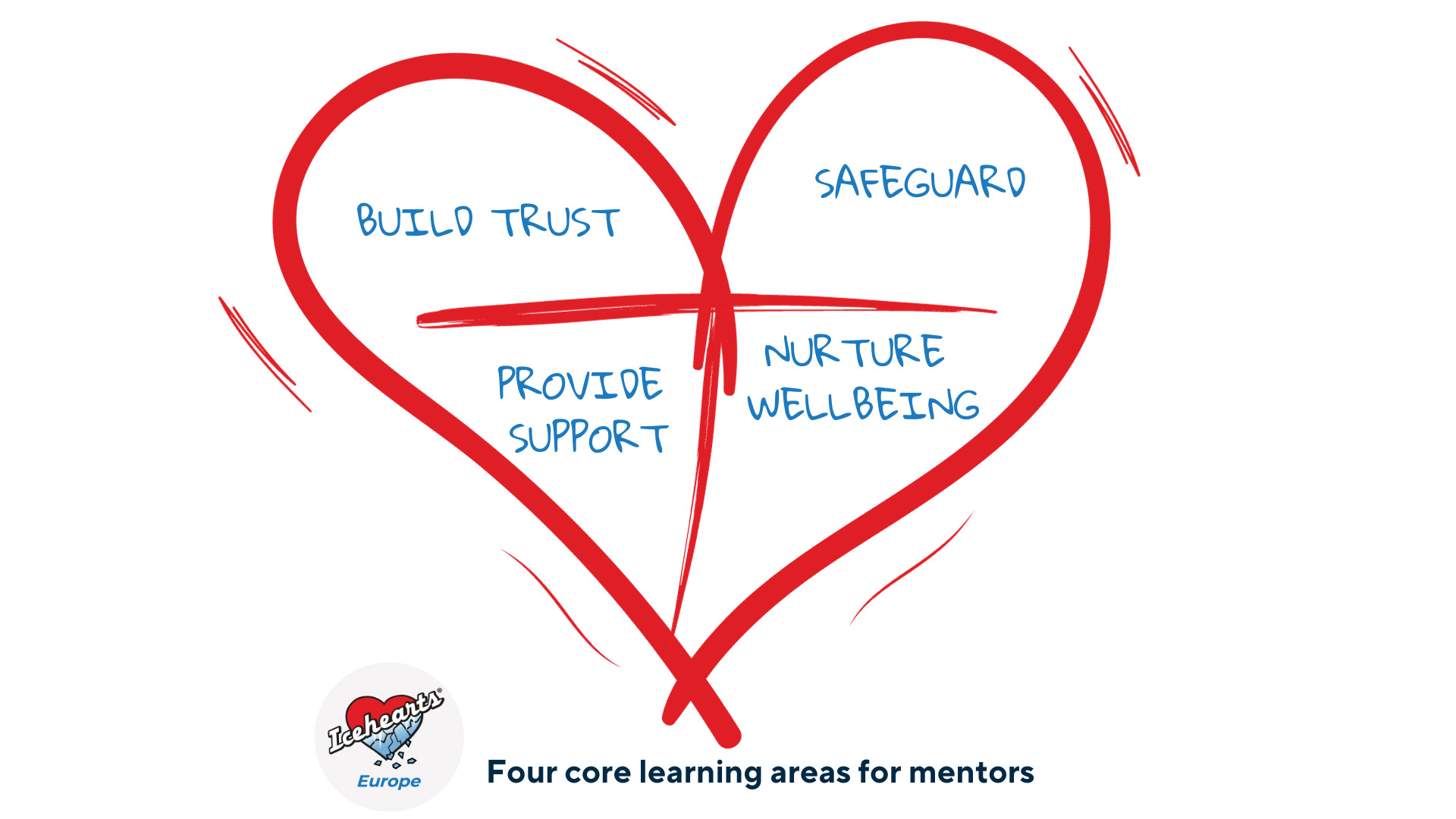
Step into your role as an Icehearts Europe Mentor with confidence
So you are on this journey to become an Icehearts Europe mentor and you are so far convinced by the overall approach. That’s great! We are here to help you step into this key role.
We will walk with you trhough the four core learning areas in the online mentor training programme. These are:

The Icehearts Europe mentor FAQ
From the beginning of the project we have mapped the Frequently Asked Questions regarding the Icehearts Mentor. Below we are providing you with answers to these questions. In addition, it is our commitment to continue editing this list throughout the project.
Learn to Build of Trust
The first thing that stands out as a description of an Icehearts Europe Mentor is to be a builder of trust. You probably and hopefully – having reached that section of the training tool – have a clear vision of what we mean by “Builder of Trust”.
So we would like to provide you here with some advice on how to build this skill.
First let’s hear what stakeholders - children and young people, parents, teachers, social workers - from Finland have to say about it.
Based on our experience, here is a list of advice and tips to build this skill:
- Set boundaries
- Demonstrate your willingness to stay and help
- Be consistent: never make a promise you cannot keep
Be an enabling mentor
The second key component to stepping into your role as an Icehearts Europe mentor is to focus on your relationship with the children and young people.
Before we get into more details, we would like to invite you to take 3 to 4 minutes for self-reflection.
Exercise 1: Look at the images below.
- Which of these images best describes your perception of an Icehearts mentor?
- What characteristics do you associate with each image?
For example: Tree: sturdy and reliable
Do you now have this list in mind?
Let’s now have a look at the curated checklist of the behaviours and characteristics of an enabling mentor as suggested by experienced Icehearts Finland mentors:
- I value young athletes and notice their different strengths, even on bad days
- I praise them and emphasise their strengths
- I am interested in children and young people’s lives: what inspires them, if they have friends, their school life, their home life and how they spend their leisure time
- I give children and young people space and time in training sessions to also talk about other issues that are important to them
- I regularly ask them for their opinions, consider their wishes and then make decisions together
- I understand that a child or young person does not intentionally behave badly, but that there is often a fear of failure or pressure to perform behind the disturbing behaviour or lack of motivation
- I can apologise for my mistakes and learn from them
- I am the safe adult in challenging situations; I stay calm and positive, I emphasise the issues
Exercise 2: Take some time to explore the following questions:
- Which of the skills do you already have?
- Which of these skills do you wish to develop further?
